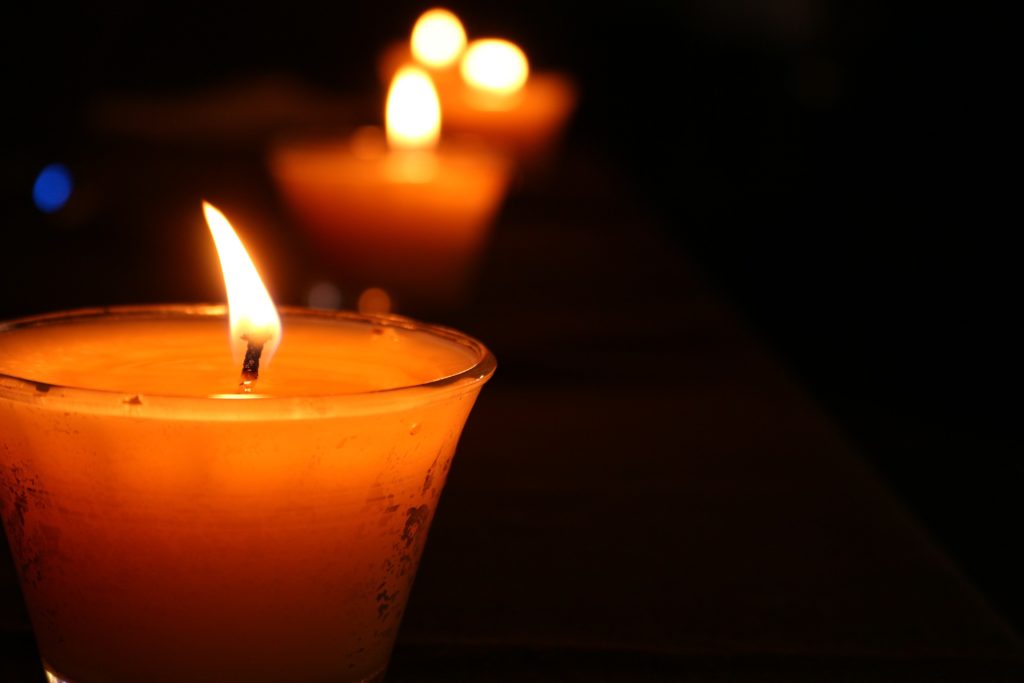The Lord is righteous in all is his ways and holy in all his works
— Psalm 145:17
Church membership and religious affiliation continues to decline in America, and it’s evident in the diminishing numbers at the Sunday worship service for my church.
That in itself is not alarming to me, as I don’t consider Christian worship and fellowship a necessity of faith, but a proper expression to please God, uplift my own spirit and help others uplift theirs.
Of far greater concern to me is the sense that the reverence for human life at the core of this country’s Judeo-Christian social conscience is receding with church affiliations.
When I consider the spate of mass shootings in 2017 and into 2018, it’s made me wonder: Could a nation that devoted to equality and justice for all people be nevertheless witnessing the value of human life diminish among its citizens?
It can, and I’m afraid that’s what’s happening.
Ours is a nation that has historically assumed value to all human life as a basic tenant of morality, and that most if not all of its citizens would have that value instilled through religious upbringing or conformity to the society’s prevailing Christianity-based mores. (Excepting, of course the abomination of slavery, and the twisted religion and philosophy that tried to justify it.) The inherent worth in all human life underlies most ideals of democracy, justice and equality. Even as America secularized, those ideals have persisted through the decades.
Will those ideals survive on their own, without religion?
We’ve come to a time in which moral education has become as obsolete as churchgoing, but nothing has taken the place of religious ethical instruction. I happen to believe that if the value of innocent life is not taught and affirmed the way it is instilled in faith, democratic ideals will become nothing but show. People will be far less likely to uphold the good of democracy if they lose touch with the appreciation for the inherent worth of all human life.
Won’t people just carry on being decent to one another?
I mean, it just seems so simple, doesn’t it? Atheists assure us that one does not have to believe in a god to be a good person and that Judeo-Christian regard for human life and dignity can exist without faith in a deity. They peddle a misguided belief that people will naturally choose to hold human life dear out of reason. Being a good person, the secular humanist belief goes, is a natural outgrowth of being enlightened or evolved.
Well, you can certainly be a good person without belief in God. The problem is that you can’t make sense of being a good person in a universalist sense outside of faith. The fact is, true, divinely taught and inspired sacrificial devotion to all of human life isn’t “rational.” Charity to strangers, looking after the welfare of all neglected children and tending to the well-being of lepers outcast at the edge of the city limits are radical principles of morality that are, in fact, irrational and even counter-evolutionary. They are the dictates of an omniscient God who demands that humans think and act with a clean break with the order of nature, including most of innate human nature.
Secular humanism is dangerous because it’s feeble. We can’t expect people to have the proper regard for goodness out of reason or mere choice. Intellectuals have often been seduced with the notion that, without belief in God, the default or most likely alternative moral posture is secular humanism. But human history teaches us otherwise, doesn’t it? Identity and plain self gratification have proven to be far more powerful pulls on human behavior than any kind of innate compulsion to “just be a good person.” Principles like the value and equality of all human life and self sacrificial compassion can hardly survive as widely held ideals without some belief in a higher power because, without faith, they are not compelling for voluntary individual adoption. I’m often bemused by progressivism that so often demonizes faith and attempts to persuade people that there is no existence outside of our short biological lives, but that nevertheless champions environmental causes that would have those same people care about the outlook for sea levels 100 years from now.
Yes, even environmentalism makes more sense from a life-transcendent, faith-ordered perspective. Without the moorings of faith and the belief in eternal truths, secular humanism is easily overcome as a moral position by our baser personal and social instincts. Where secular humanism has persisted, it has been nothing more than a facile mimicry of the Judeo-Christian-based morality that preceded and to some degree coexists with it. It’s nothing but “acting like” people who believe in God.
For the far greater balance of human existence throughout time and across cultures, people have thought and lived hierarchically, selfishly or tribally. We have valued personal, ethnic or national interests above human life — especially the lives of other peoples. And when the West became more secular, the value systems that rushed in to take the place of Christian values have been wicked movements of order or hierarchy like communism, social Darwinism and fascism accessorized with the usual and ever-reliable ethnocentric tribalism willing to grind up human flesh for their various causes.

Christians and those with Christianity-inspired values have struggled mightily against human nature to open slivers of existence that promote unconditional and universal compassion and justice. Outside of faith, any reason to be good in the secular sense always has a rival and compelling cause that justifies inhumanity, like the causes of race or nationality, the pull of ideological movements or for whatever new social order for which people are willing to kill. Without belief in God, there are always persuasive reasons to make exceptions to being good in the irrational, counter-evolutionary sense that faith demands, in which people are expected to sacrifice self interest for the sake of eternal truths.
Only belief in God makes sense of the assertion that no cause or movement is worth demeaning or destroying innocents, no matter how disabled or chronically infirm any person might be. Only through faith in a higher power could we righteously proclaim that the best condition for each person is free and equal to all others before God and laws. Again, many people in the West might consider it common sense that a poor, disabled person should be regarded as equal before the law with a billionaire, prince or great warlord. If that’s common sense, it’s common sense by which humankind has almost never abided, and still does not in most parts of the world. Rather than common sense, Christ-ordered morality is a radical notion that lives as a rare and fragile bloom, whose season, I fear, is coming to a close.
Secular humanism is easy to practice as fair-weather social conformity that requires nothing of us besides a nod of assent with everyone else or the occasional kind gesture. But morality is what orders our thoughts and behavior towards strangers when we’re afraid, when food is scarce, when our children are threatened, when our favorite indulgences are at risk or when our personal or ethnic interests run counter to transcendent values. You can get unbelievers to parrot Christian values until something more charismatic comes along that makes us feel safer or affirms something within us that has nothing to do with the welfare of strangers. And something else always comes along.
‘Build your hopes on things eternal’
Faith has motivated moral behavior for millennia, but secular and intellectual formulations for moral behavior never last long. Like ancient asceticism, they tend to take hold only among educated elites as something like cultural fads. That’s what’s becoming of secularized democracy: As nationalist movements rise and generalissimos and strongmen play to prejudice and fear at the expense of equality and justice, liberal democracy is losing ground worldwide and is starting to look like fashionable thought whose heyday is sun setting. Faith-like goodness is going out of style.
What has not gone out of style for Christians of all nations, colors and creeds is the Godly habit of reflection and self examination, in which we measure our thoughts and actions against eternal moral standards. There is no secular alternative as universally compelling and applicable to all people as is Biblical faith, which teaches us, as the hymn goes, to “hold to God’s unchanging hand.”
That returns me to the record of school shootings I opened with. Our society has produced no substitute for what faith gives young people: An eternal reference point of love and salvation from which they can approach their deepest fears, worst calamities and seemingly intractable personal challenges and insecurities. Without such a reference, kids are far more inclined to judge themselves and others by looks, abilities or what they do or their material possessions than by character. Without proper knowledge of God’s love, they don’t know how to properly value themselves.
Further, outside of faith, there is little to compel all people, young or old, to habitually expand not only their consciousness but their moral conscience beyond the immediate interests of themselves or their people, whoever they might be. Faith-based self worth and the unconditional value of all human life form the moral cornerstone of our democratic institutions. I think it’s an essential moral order for a democracy as diverse as America’s, in which there are regions and groups that do not share strong cultural or social ties.
If we allow Christian-based values to erode enough, the lives, dignity and welfare of others will mean less to us, and so will the democratic institutions established to safeguard them.

